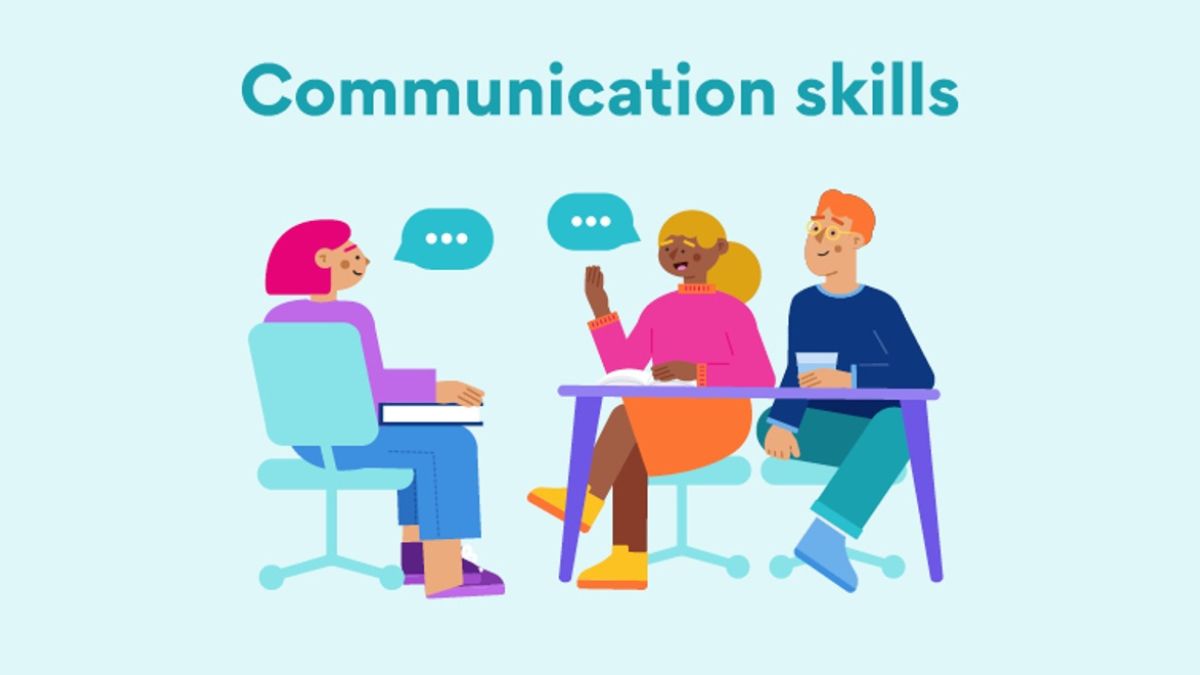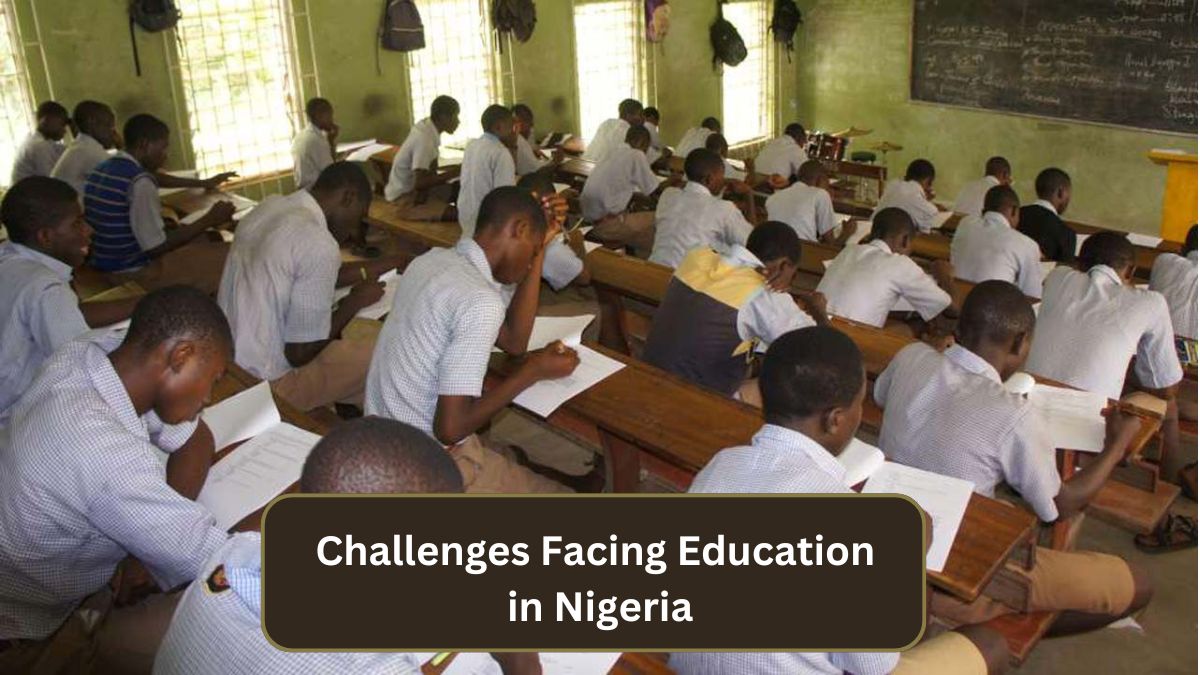
Challenges Facing Education in Nigeria
Education is often hailed as a cornerstone of national development and individual empowerment. In Nigeria, however, the education sector faces numerous challenges that hinder its effectiveness and accessibility.
From inadequate infrastructure to socio-economic disparities, these issues impact the quality of education and limit opportunities for millions of Nigerian students.
Table of Content
What are the major challenges facing education in Nigeria?
What is the biggest challenge facing education in Nigeria?
What are the effects of poor infrastructure in Nigerian schools?
How relevant is the current curriculum in Nigerian schools?
Why is education becoming expensive in Nigeria?
What is examination malpractice, and how does it affect education?
Why are there so many out-of-school children in Nigeria?
Why is there unequal access to quality education in Nigeria?
What steps can be taken to address the challenges in Nigerian education?
How can individuals contribute to improving education in Nigeria?
What are the major challenges facing education in Nigeria?
Inadequate Funding
One of the most pressing issues is the underfunding of the education sector. Despite constitutional provisions mandating a minimum of 26% of the annual budget for education, the allocation often falls short. This shortfall results in dilapidated infrastructure, poor teacher remuneration, and inadequate learning resources.
Poor Infrastructure
Many Nigerian schools, particularly in rural areas, lack basic amenities such as classrooms, libraries, laboratories, and toilets. This creates an unfavourable learning environment and discourages students from attending school. The absence of essential facilities hampers the delivery of quality education.
Teacher Shortages and Quality
The shortage of qualified teachers is a chronic problem. Many schools operate with insufficient teaching staff, leading to overcrowded classrooms and compromised learning outcomes. Additionally, the quality of teacher training and professional development is inconsistent, impacting the effectiveness of instruction.
High Cost of Education
Education has become increasingly expensive, making it inaccessible to many. School fees, textbooks, uniforms, and other educational materials are beyond the reach of low-income families. This financial burden contributes to high dropout rates and limits educational opportunities for disadvantaged students.
Insecurity
The prevailing insecurity in certain regions of Nigeria has disrupted the education sector. Schools have been attacked, leading to the closure of institutions and the displacement of students and teachers. This has created a climate of fear and uncertainty, hindering the learning process.
Examination Malpractice
Examination malpractice is a pervasive problem that undermines the credibility of the education system. The widespread practice of cheating and irregularities compromises the integrity of academic qualifications.
Out-of-School Children
Millions of Nigerian children are out of school. Factors contributing to this issue include poverty, insecurity, cultural norms, and lack of awareness about the importance of education. This has severe implications for the country's human capital development.
Inequality in Access
Access to quality education is unevenly distributed across Nigeria. Rural areas often have limited educational resources compared to urban centres. This disparity exacerbates existing inequalities and hinders social mobility.
Corruption
Corruption within the education sector diverts funds meant for infrastructure, teacher salaries, and student support. This misappropriation of resources undermines the quality of education and hinders the sector's development.
Technological Gap
The technological gap is another concern. While some schools in urban areas have access to modern technology and digital learning resources, many rural schools lack basic technological infrastructure.
This gap exacerbates educational inequalities and limits students' exposure to digital literacy, which is increasingly important in the modern world.
Political and Administrative Instability
Political instability and administrative inefficiency further complicate the education system. Frequent changes in government policies and leadership can lead to inconsistency in educational reforms and implementation.
Additionally, corruption and mismanagement of funds contribute to the inefficiencies within the education sector, affecting the delivery of services and the equitable distribution of resources.
What is the biggest challenge facing education in Nigeria?
The biggest challenge facing education in Nigeria is inadequate funding. This issue results in poorly maintained infrastructure, overcrowded classrooms, a shortage of learning materials, and low teacher salaries.
These factors contribute to a substandard learning environment, affecting the overall quality of education and limiting students' academic and future opportunities.
What are the effects of poor infrastructure in Nigerian schools?
Poor infrastructure in Nigerian schools has several significant effects:
- Uncomfortable Learning Environment: Inadequate facilities such as poorly ventilated classrooms, broken furniture, and unreliable lighting can create an uncomfortable and distracting environment for students.
- Limited Access to Resources: Schools with poor infrastructure often lack essential resources like textbooks, laboratories, and technology, hindering students' learning experiences and practical skills development.
- Increased Dropout Rates: Poor conditions can lead to higher dropout rates as students may struggle to learn effectively and may be discouraged from continuing their education due to uncomfortable or unsafe conditions.
- Health and Safety Risks: Dilapidated buildings and inadequate sanitation can pose health risks, such as exposure to mould, poor air quality, and unsafe facilities, affecting students' well-being.
- Reduced Teacher Morale: Teachers working in poorly equipped and maintained schools may experience lower job satisfaction and motivation, which can negatively impact their teaching effectiveness and student outcomes.
- Inequality in Education: Poor infrastructure often disproportionately affects schools in rural and underfunded areas, exacerbating educational inequality and limiting opportunities for students in these regions compared to those in better-resourced schools.
How relevant is the current curriculum in Nigerian schools?
The current curriculum in Nigerian schools is widely seen as outdated and insufficiently aligned with the demands of the modern job market. It primarily focuses on rote learning and preparing students for standardized exams, often neglecting the development of practical skills and critical thinking abilities.
This traditional approach can limit students' ability to apply knowledge in real-world situations and adapt to rapidly changing technological and economic landscapes.
Moreover, the curriculum frequently lacks integration of contemporary topics such as digital literacy, entrepreneurship, and other skills essential for today’s workforce. This gap can leave students ill-prepared for current job market requirements and future career challenges.
Efforts to modernize the curriculum and make it more relevant are ongoing, but significant changes are still needed to better equip students for success in a dynamic and evolving world.
Why is education becoming expensive in Nigeria?
Education in Nigeria is becoming increasingly expensive due to several key factors. First, the cost of educational materials, such as textbooks and digital resources, has risen significantly, making it harder for families to afford necessary supplies. Second, inflation has impacted the overall cost of living, including school fees and other related expenses.
Additionally, there is a growing demand for private schooling, which often comes with higher tuition fees compared to public schools. Private schools are perceived to offer better quality education and facilities, driving more families to seek these options despite the cost.
Teacher salaries have also increased as part of efforts to improve education quality, adding to the financial burden on educational institutions. Moreover, inadequate government funding means that public schools often struggle with limited resources and infrastructure, leading to higher costs for students.
Economic instability and fluctuations in the currency further exacerbate these issues, making it challenging for schools to maintain affordable education while coping with rising costs. As a result, these factors collectively contribute to the increasing expense of education in Nigeria.
What is examination malpractice, and how does it affect education?
Examination malpractice refers to any form of dishonesty or misconduct during an examination. This includes actions such as cheating, plagiarism, using unauthorized materials, or getting help from others. In Nigeria, common forms of examination malpractice include:
- Impersonation: A student arranges for someone else to take their exam on their behalf.
- Copying: Students exchange answers during the exam or copy from another student's paper.
- Use of Unauthorized Materials: Bringing in notes, textbooks, or electronic devices that are not allowed.
- Collusion: Students work together to share answers or information during an exam.
Impact on Education:
- Compromised Academic Integrity: Examination malpractice undermines the credibility of academic qualifications and the integrity of the education system. It devalues the efforts of honest students and erodes trust in the qualifications awarded.
- Unfair Advantage: Students who engage in malpractice gain unfair advantages over their peers who follow the rules, leading to an unequal educational environment.
- Skill Deficiency: Students who rely on cheating rather than learning the material miss out on acquiring essential knowledge and skills, which can affect their future academic and professional performance.
- Increased Pressure on Students: The prevalence of examination malpractice often stems from intense pressure to succeed, which can lead to a culture of dishonesty and unethical behavior among students.
- Strain on Educational Institutions: Schools and examination bodies face significant challenges in enforcing rules and maintaining standards, leading to additional administrative burdens and costs.
- Negative Impact on Future Opportunities: Students who engage in malpractice may face long-term consequences, such as difficulties in higher education or employment, as their academic integrity is questioned.
Why are there so many out-of-school children in Nigeria?
The high number of out-of-school children in Nigeria can be attributed to several interrelated factors:
- Poverty: Many families cannot afford the cost of education, including school fees, uniforms, and books. Economic hardship forces children to work and contribute to family income rather than attend school.
- Inadequate Infrastructure: Many schools in Nigeria suffer from poor infrastructure, including insufficient classrooms, lack of clean water, and inadequate sanitation facilities. This makes it challenging for schools to accommodate all children and provides an unsatisfactory learning environment.
- Gender Inequality: In some regions, especially in northern Nigeria, cultural and traditional norms prioritize boys' education over girls'. This gender disparity results in fewer girls attending school and higher dropout rates among female students.
- Insufficient Teachers: There is a shortage of qualified teachers, which affects the quality of education and can lead to overcrowded classrooms. This shortage makes it difficult for schools to provide effective teaching and support for all students.
- Conflict and Displacement: Ongoing conflicts, insurgencies, and violence, particularly in the northern and northeastern regions, have displaced many families. This displacement disrupts children's education as schools are destroyed or become inaccessible, and displaced children often lack access to education in their new locations.
- Lack of Access to Schools: In rural and remote areas, many children live far from the nearest school. The lack of transportation and safe routes to school can prevent children from attending, especially during adverse weather conditions.
- Health Issues: Poor health and nutritional conditions can also affect school attendance. Illnesses, malnutrition, and poor healthcare infrastructure can result in frequent absences or dropouts.
- Child Marriage: Early marriage, particularly in certain cultural and religious communities, leads to girls leaving school to assume domestic roles and responsibilities as young brides.
Why is there unequal access to quality education in Nigeria?
Unequal access to quality education in Nigeria arises from several key factors:
- Regional Disparities: There are significant differences in educational resources and infrastructure between urban and rural areas, as well as among various states. Northern regions often face more challenges compared to southern regions due to historical, economic, and social factors.
- Economic Inequality: Many families struggle to afford education-related expenses, such as school fees, uniforms, and books. This financial burden can force children to drop out of school or attend lower-quality institutions.
- Poor Infrastructure: Many schools, particularly in rural areas, suffer from inadequate facilities, such as insufficient classrooms, outdated learning materials, and lack of basic amenities like clean water and electricity.
- Teacher Shortages: There is a shortage of qualified teachers, particularly in remote areas. This leads to overcrowded classrooms and reduced attention for each student, impacting the quality of education.
- Gender and Cultural Barriers: In some regions, cultural practices and gender biases limit educational opportunities for girls and other marginalized groups. This results in lower enrollment and completion rates among these populations.
- Conflict and Displacement: Ongoing conflicts and displacement due to violence or insurgency disrupt education in affected regions, causing interruptions and lack of access to schooling.
- Inadequate Government Funding: Government funding for education is often insufficient and unevenly distributed, leading to disparities in educational quality and resources across different regions.
- Lack of Accessibility: Many rural areas lack proper transportation and accessibility to schools, making it difficult for children to attend regularly. This exacerbates the education gap between rural and urban areas.
What steps can be taken to address the challenges in Nigerian education?
To improve the Nigerian education system, the following steps can be taken:
- Increased funding: Allocating more funds to education for infrastructure development, teacher salaries, and educational resources.
- Improved infrastructure: Building and maintaining schools with adequate classrooms, libraries, and laboratories.
- Teacher welfare: Increasing teacher salaries, providing better working conditions, and investing in teacher training.
- Affordable education: Implementing policies to reduce the cost of education, such as scholarships and fee waivers.
- Enhanced security: Protecting schools and students from violence to ensure a safe learning environment.
- Curriculums review: Updating curriculums to align with current job market needs.
- Combating corruption: Implementing measures to prevent misuse of funds allocated to education.
- Technology integration: Incorporating technology into classrooms for interactive learning.
- Private sector involvement: Encouraging private sector participation in education through partnerships and investments.
- Early childhood development: Focusing on early childhood education to build a strong foundation.
- Support Out-of-School Children: Launch campaigns and programs to encourage the enrollment and retention of out-of-school children. Develop alternative education models, such as community schools and informal education programs, to reach children who are unable to attend traditional schools.
- Combat Examination Malpractice: Enforce strict anti-cheating measures and improve examination security to reduce malpractice. Promote ethics and integrity in education to foster a culture of honesty among students and educators.
How can individuals contribute to improving education in Nigeria?
Individuals can contribute by supporting educational initiatives, volunteering, donating to schools or educational charities, and advocating for policy changes. Community involvement and awareness can also drive positive changes in the education sector.
Conclusion
The challenges facing education in Nigeria are multifaceted and require effort from the government, educators, and the community to address. Improving infrastructure, increasing funding, training teachers, and ensuring equitable access are critical steps towards enhancing the quality of education.
By tackling these issues, Nigeria can move closer to providing all its citizens with the opportunity for a quality education and a brighter future.
No comment found
Related Posts

Top 20 Motivational Quotes for Students to Work Hard
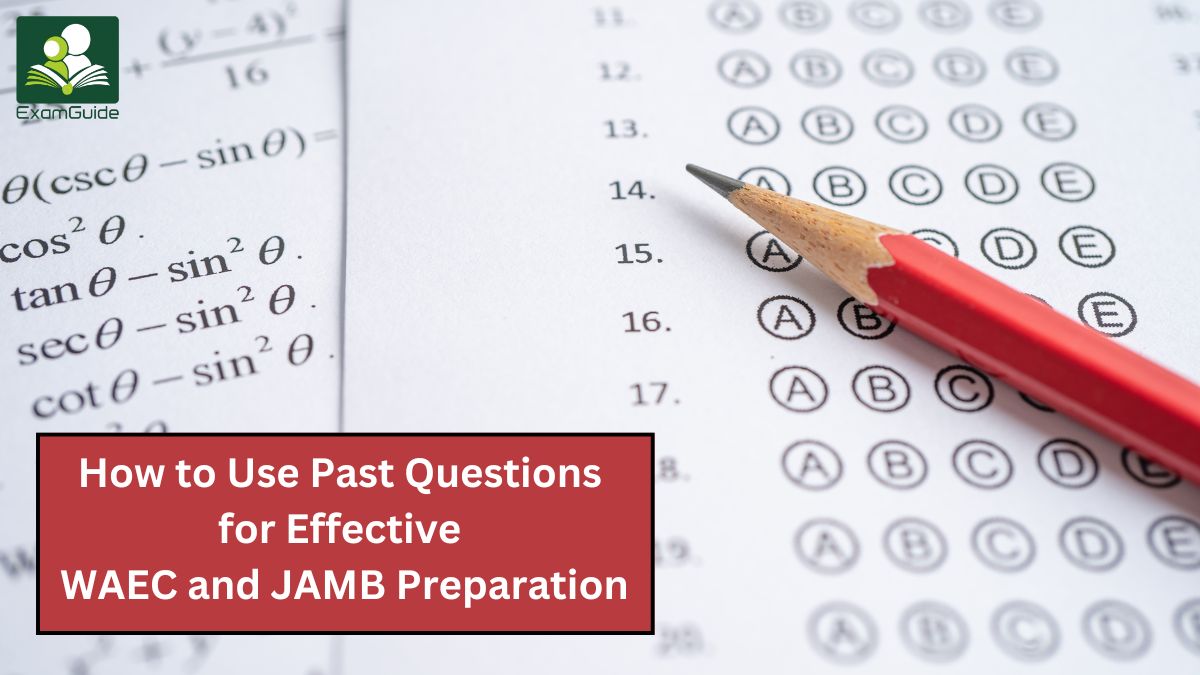
How to Use Past Questions for Effective WAEC and JAMB Preparation
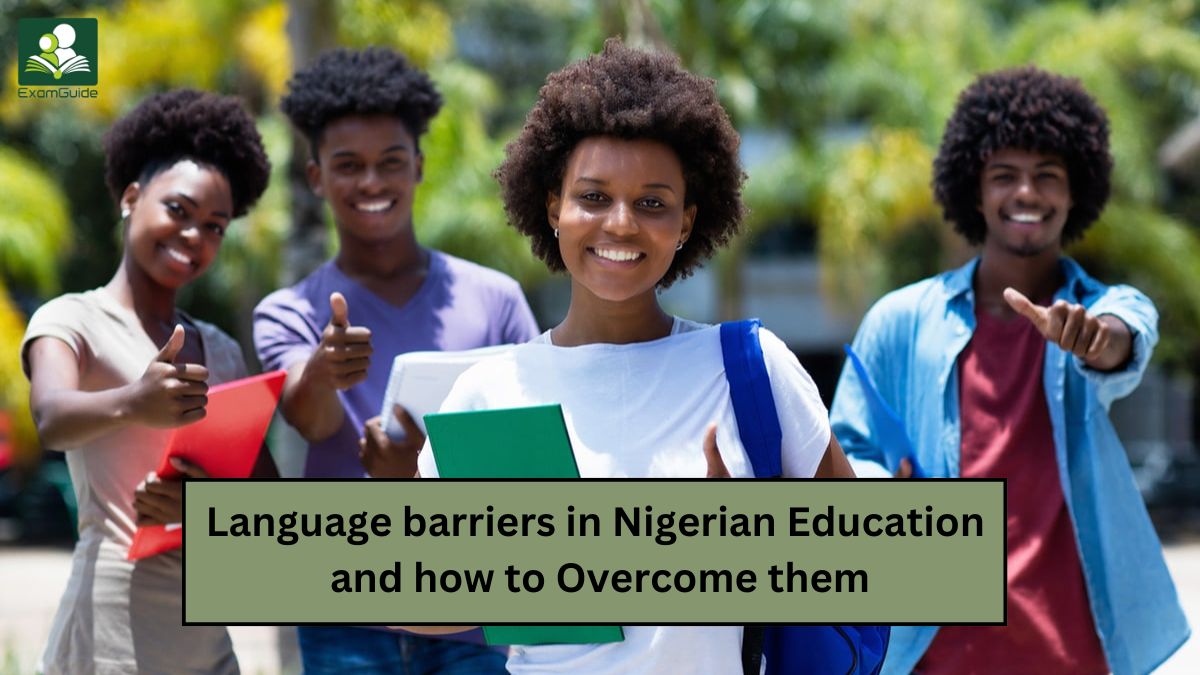
Language barriers in Nigerian Education and how to Overcome them

How to Excel in Mathematics: Tips for Nigerian Students
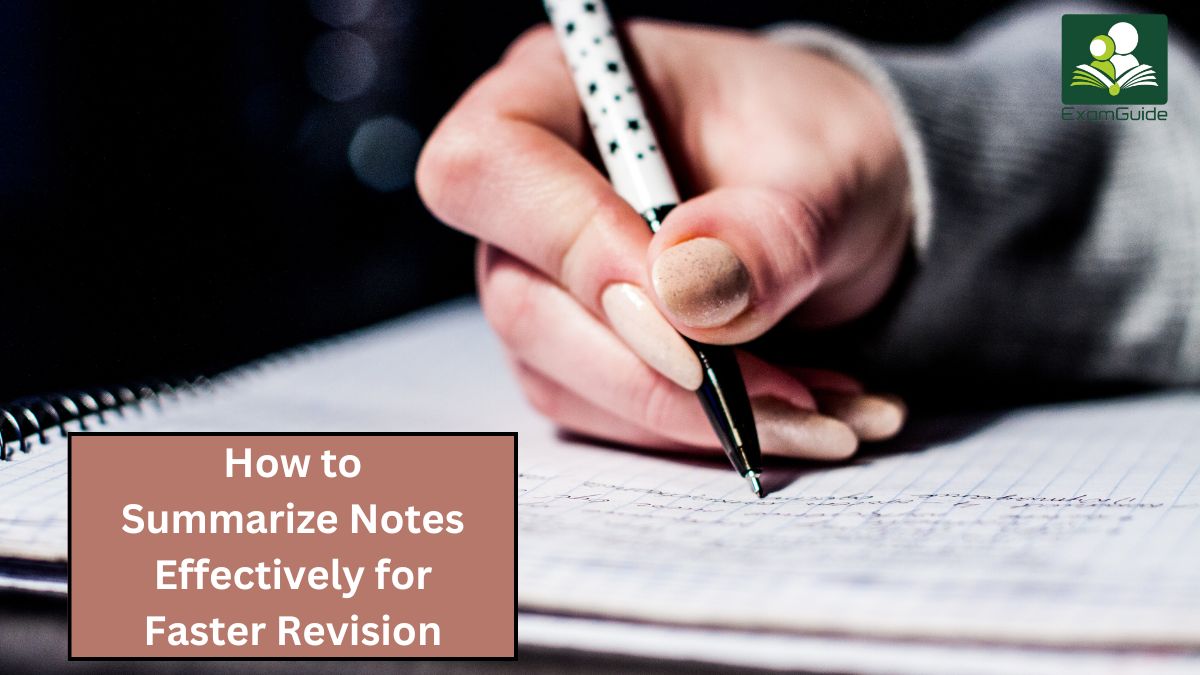
How to Summarize Notes Effectively for Faster Revision
